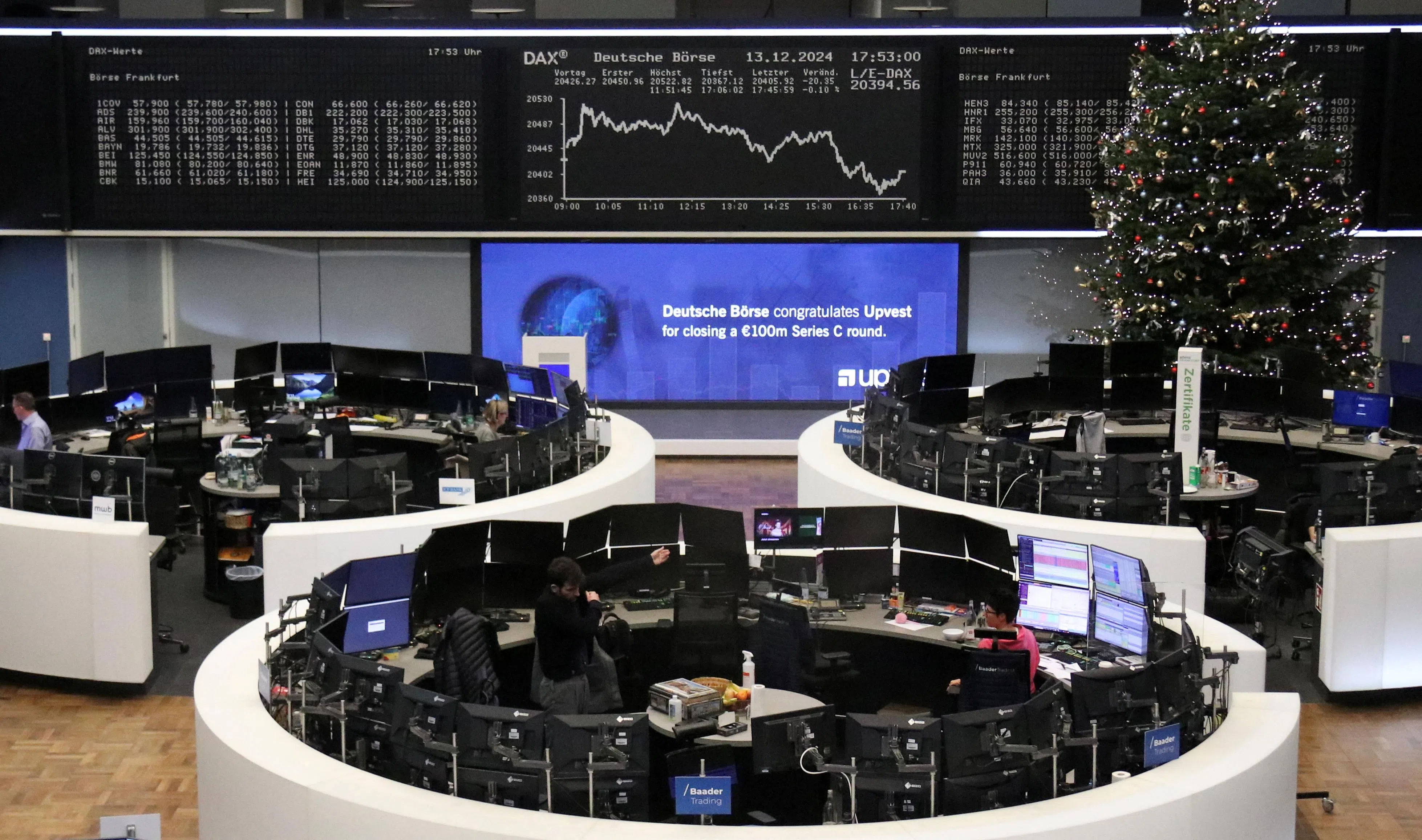US stocks closed out the trading week near the unchanged mark in a subdued session on Friday (Dec 13), with the S&P 500 and Dow posting weekly declines, while the Nasdaq secured its fourth consecutive week of gains.
Broadcom forecast quarterly revenue surpassing Wall Street expectations and predicted robust growth in demand for its custom artificial intelligence (AI) chips over the next few years. The optimistic outlook propelled the company’s shares higher, pushing its market capitalisation past US$1 trillion for the first time.
Chip stocks were a mixed bag on Friday, with Broadcom rival Marvell Technology gaining, while AI bellwether Nvidia gave up earlier gains. However, the broader semiconductor index managed to advance, reflecting ongoing strength in the sector despite some individual stock declines.
Yields on US Treasuries rose across the board, with ones on the benchmark 10-year bond hitting a three-week high.
“Right now the interest rate sell-off is winning,” said Jay Hatfield, chief executive officer at Infrastructure Capital Management in New York. “It’s pretty natural for value and income stocks to go down when tech stocks are rising.”
Technology stocks continued their upward momentum, driving the Nasdaq above the 20,000 mark for the first time on Wednesday. The rally was further bolstered by an in-line inflation report, which solidified expectations for a 25 basis-point interest rate cut from the US Federal Reserve in its meeting next week.
BT in your inbox
Start and end each day with the latest news stories and analyses delivered straight to your inbox.
Trader bets on the cut at the central bank’s Dec 17-18 meeting stand at near 97 per cent, according to CME’s FedWatch Tool. However, they indicate chances of a pause in January.
According to preliminary data, the S&P 500 lost 0.19 point to end flat at 6,051.06 points, while the Nasdaq Composite gained 21.69 points, or 0.1 per cent, to 19,924.53. The Dow Jones Industrial Average fell 85.68 points, or 0.2 per cent, to 43,828.44.
Wall Street had taken a breather in the previous session after recent gains and some hot economic data ahead of the Fed’s meeting, setting up the benchmark S&P 500 and the Dow for weekly losses. However, the Nasdaq ended the week higher.
US stocks have repeatedly reached all-time highs this year, driven by surging interest in heavyweight tech companies capitalising on AI trends.
Investor sentiment also received a boost following Donald Trump’s presidential election victory, as markets anticipate his pro-business policies could enhance corporate profitability.
Among other movers, RH rose after the home furnishings retailer reported higher net revenue for the third quarter, while DR Horton declined as JPMorgan downgraded its rating on the homebuilder to “underweight”. REUTERS







